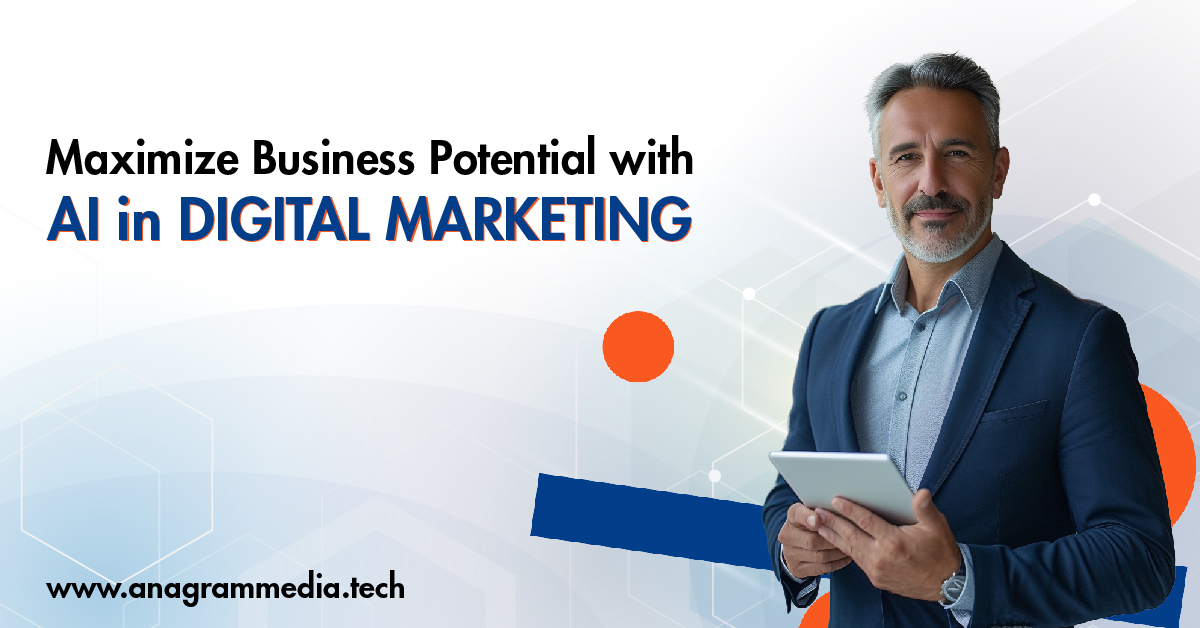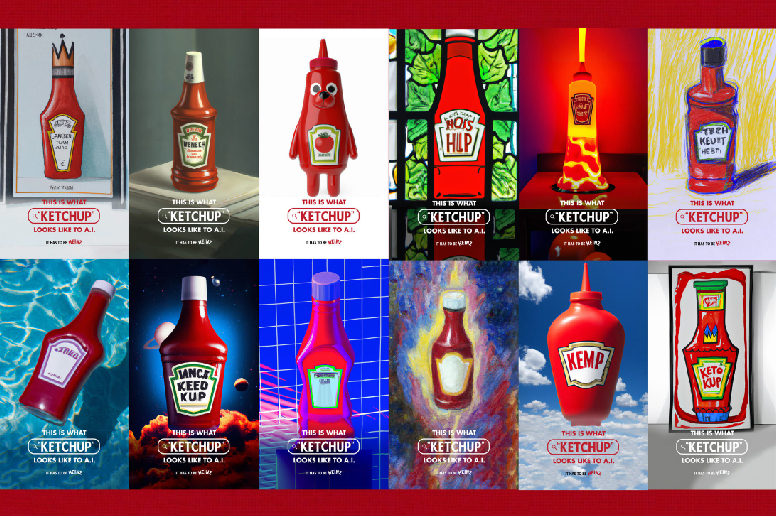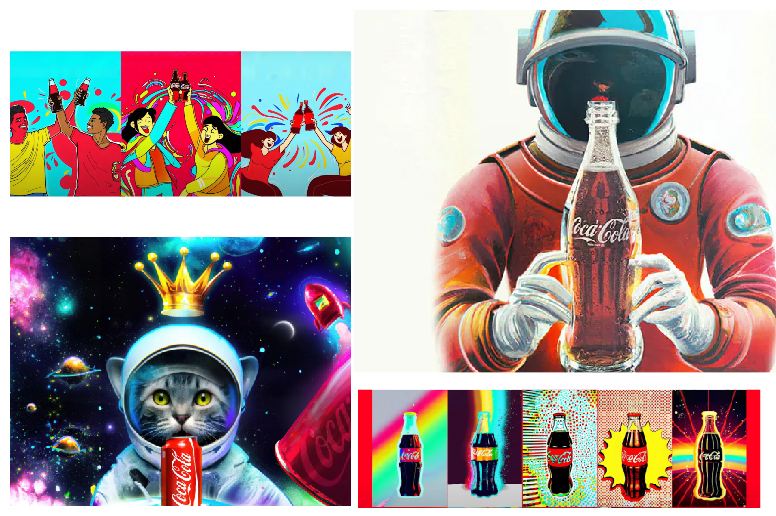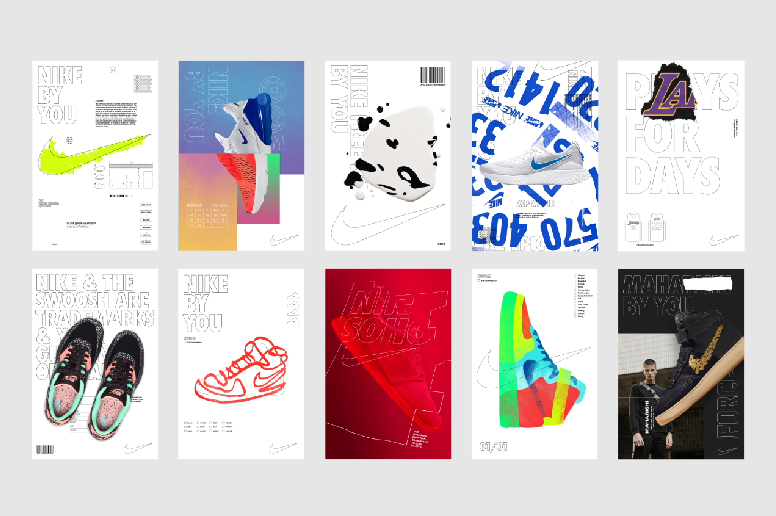
Did you know that two-thirds (66%) of companies are either executing or planning to apply AI to address their sustainability goals? It is no overestimation to say that we are currently witnessing the second tectonic shift in the world of digital marketing. The emergence of AI in digital marketing landscape is the radical shift we’re talking about. If you think that AI is just a game-changer you are wrong, it is a trendsetter with its own set of rules.
It is highly improbable that any brand aiming for sustainable growth in 2024 needs to be made aware of the concept of Artificial Intelligence aka AI. However, the question is – What precisely is AI? And, how can a brand level up its operations using AI in digital marketing? What will be the fate of the brands that miss out on the AI bandwagon? What are the AI tools beneficial for a brand’s exponential growth? Let’s get straight into the answers to these burning questions.
Introduction
Earlier the sci-fi dream, AI in digital marketing is now a full-fledged reality. A Forbes article rightfully calls AI what it is, the most successful branding campaign of all time. Artificial Intelligence refers to a machine’s ability to perform human-like cognitive functions like learning, analyzing, reasoning, and even creative pursuits, using ever-evolving machine learning and deep learning technologies.
Machine learning has the potential to revolutionize industries through data training, as it employs data-driven algorithms to process, learn, predict, and recommend. Conversely, deep learning can process larger data sets using neural networks (like the neuron networks in the human brain).

Machine learning is where you start putting effort and deep learning is where you go the extra mile. Deep learning is especially essential to businesses where personalization has to be done in the blink of an eye like e-commerce platforms. The deep learning mechanism uses advanced algorithms to analyze the user’s requirements more accurately.
This technological advancement is evident in our day-to-day lives through various tools. Take Siri or Alexa for example, these AI-powered virtual assistants have transformed our interaction with technology influencing our decisions around goods and services.
AI in digital marketing is not a standalone technology. Its application expands into multiple tools and techniques, given its potential to enhance productivity, efficiency, and innovation. Tools utilized can be integrated into a business right from planning to execution.
How can AI in digital marketing maximize your brand’s potential?
Leading global brands have welcomed AI in digital marketing with open arms and it’s not without a reason. They know what most brands don’t, AI is here to stay with its unprecedented potential to transform businesses. So much so that according to a Forbes Advisor Survey, 64% of businesses have an optimistic outlook on the potential of Artificial Intelligence to enhance productivity.
A brand’s representation in the current business environment can make or break it. McKinsey Global Institute’s analysis gives a clear picture of AI’s role in leading recognition by stating, “AI’s potential impact is greatest in marketing and sales and supply-chain management and manufacturing.”
The primary faces of a brand, marketing and sales, now rely on AI in digital marketing for its capability to study consumer behaviour and personalize brand experience through deep insights. AI’s mark on manufacturing and supply chain is remarkable with its predictive analytics and intelligent automation meaning more efficiency and fewer costs.
Furthermore, an Accenture study suggests, “Companies that are strategically scaling AI report nearly 3X the return from AI investments compared to companies pursuing siloed proof of concepts.” Clearly, one shouldn’t jump head-on into the AI waters, but formulate a well-structured plan to derive greater results and a significant ROI.

It is crucial for a modern business to systematically integrate artificial intelligence throughout its tasks to tap into potential benefits, ultimately driving growth and profitability. AI tools in digital marketing are reshaping how brands engage and operate. SaaS marketers have a unique opportunity to harness the power of AI to drive growth and success. If you are a SaaS marketer trying to unlock these limitless possibilities, explore our AI-powered SaaS services now!
Why should you include AI tools in your Martech Stack?
It’s a prerequisite to have a solid understanding of the fundamental components involved in the marketing journey to establish a coherent marketing strategy and plan. With the rapid development of the latest AI technology in digital marketing, the significance of data and computing can not be overstated.
A Deloitte global survey of early AI adopters conducted in 2020 showed that 3 of the top 5 AI objectives revolve around marketing – enhancing existing products and services, creating new products and services, creating new products and services, and enhancing relationships and customers.
Learn to forge through AI-powered customization and optimization to substantially enhance your marketing strategy step-by-step.
- Lay Out the Foundation for Marketing Success
The initial step to making the most out of AI in digital marketing is to acknowledge and act upon this foundation to lay the groundwork for the successful integration of AI tools into your martech(marketing technologies) stack to streamline, automate, and optimize the complete marketing funnel.
This could mean different things, depending on your current status of technological advancements. It involves building a responsive website, an active social media presence, and a seamless customer relationship management (CRM) setup.
It also involves establishing unified data management, ensuring data quality and governance, provisioning scalable computing resources, integrating AI with martech platforms, and implementing robust security and compliance measures.
- Understand Your Consumer’s Digital Footprint

One crucial step in the marketing funnel is to gain a deeper understanding of your customer. In the digital territory, it happens to be the digital footprint or the trail followed during the customer journey throughout various touchpoints.
To craft a personalized marketing experience, marketers need to utilize AI-led analytic tools to track customer interactions. This insight enables you to tailor your marketing strategy to fit into unique customer expectations.
Identify the preferences, behaviours, and patterns of your target audience. Find a harmony between your business goals and the audience’s expectations.
- Curating Marketing Tech to Stitch Your Entire Funnel
A vast pool of marketing technologies is now at your disposal. Selecting the right tools to orchestrate your funnel is of utmost importance. Set up the base Marketing Funnel through auditing and selecting the best suite of tech stack.
To begin with, first, identify the channels and set up a Customer Data Platform (CDP) to gather data, implement Customer Relationship Management (CRM) to optimize, and set omnichannel attribution, Marketing Segmentation, and Automation Tools. Here’s a link to our comprehensive guide on building a martech stack from scratch
Leverage AI-powered platforms to systematize lead generation, automate email campaigns, and augment conversion rates. AI is a strong proposition at each stage of the funnel, helping you build a seamless marketing pipeline.
- Drive Maximum Results with Data Analytics
Once your plan is in motion, make sure to analyze the progress through important and insightful metrics. Start with collecting meaningful data and build up a uniform database to detect and locate the data necessary to perform a particular task.
The real magic happens after data collection when you analyze it to uncover actionable insights. AI presence strengthens the data analytics multifold by sifting through heaps of data in real-time, helping you make data-backed informed decisions.
Wondering which domain-wise tools to include in your deck? Read our blog to know more.
- Make Strategic Decisions with Big Data Insights
A cornerstone of the latest AI technology integration in marketing practice is the use of big data analytics. It helps marketers extract the fine details hidden beneath the data that are difficult to identify through manual analysis. This in-depth analysis helps you structure your decisions based on the data.
AI-driven algorithms can segment consumers based on purchasing behaviour, predict future market trends, and customise marketing messages to match individual preferences. AI tools help marketers make informed decisions by concluding historical and real-time data.
- Nurture AI Proficiency in Your Team
To excel in the latest AI technology, one needs to adopt an agile approach. A competent team plays a crucial role in attaining sustained success in business. Companies should strive to build a team with proficiency in leveraging the potential of AI. The hiring process should prioritize recruiting top-notch talent with exceptional expertise.
- Architect Your Database & Utilize Python for ML
AI-backed marketing involves dealing with large volumes of complex data, making it essential to foolproof the database architecture. Properly structuring the database architecture is essential to efficiently store, organize, and retrieve data.

Python is a programming language that complements this process by providing a robust platform for developing machine-learning (ML) models. In the direction of marketing efforts, Python helps develop custom ML algorithms to meet specific marketing objectives. Through popular ML libraries, such as scikit-learn, TensorFlow, and PyTorch, marketers can build, train, and deploy ML models to attain their marketing goals.
- Identify & Implement the LLM Model
Large Language Models (LLMs) are deep learning models, trained on vast amounts of data. These models based on self-attention mechanisms are ideal for generating text, making them an essential part of the marketing stack. However, before implementing an LLM model, marketers must first analyze certain metrics to ensure their accuracy, precision, and recall.
Fine-tuning and validation are also crucial steps to generalize the model to unseen data. Once you identify and train the LLM model, it’s time to use it in an actual production environment to analyze and interpret textual data, making it a valuable tool for achieving marketing goals.
- Continuously Train for ML Models
Artificial intelligence (AI) is a rapidly evolving technology, which means that machine learning (ML) models require regular and continuous training and fine-tuning to stay viable. There are several reasons why ML models can lose their effectiveness over time, such as changes in data distribution, user preferences, or technological advancements.
To address this, we can use a process called retraining, which involves updating the existing ML models by feeding them new data and allowing them to learn from it. Retraining can be automated or manually executed by experts based on the specific requirements of the ML model. This process helps to ensure that ML models continue to deliver accurate results and remain relevant in the constantly evolving technological landscape.
The Brands Who’ve Got It Right!
- Heinz
Heinz reinforced its brand authority and made exemplary use of AI in digital marketing through its “Heinz A.I. Ketchup” campaign aimed to target a younger audience and was based on instructing the AI platform Dall-E 2 to generate images that represented a ketchup bottle.

The brand invited customers to share related prompts to generate the images, which created quite a buzz. The results were nothing short of excellent marketing. Even the imperfect visuals pointed in the perfect direction that even AI equated Ketchup to Heinz.
- Netflix
Netflix came up with the genius idea to leverage AI in digital marketing to take content personalization to the next level. It utilises relevant data to understand the pattern in which the audience consumes media on their OTT platform.
Netflix powered up and made the content strictly personal by tailoring content to their viewers’ preferences with its commendable use of artificial intelligence. The AI collects data and crisps it down to generate recommendations, from personalized movies, and shows to customised cover images, all of which cater to the user’s taste and streaming patterns.


- Coca Cola
Coca-Cola delivered a true testament to the positive impact of AI in digital marketing. Coca-Cola showed how AI is transforming brands, through its “Create Real Magic” campaign. Coca-Cola is committed to leveraging artificial intelligence across its marketing and achieving this, the company launched a dedicated platform, createrealmagic.com. The campaign invited and encouraged artists from select countries to create original digital artworks with access to Coca-Cola’s digital assets archive.
The artworks that stood out were featured on Coke’s billboards in Times Square and Piccadilly Circus. The campaign was a huge success and boosted the brand recall among consumers worldwide.

Overall, the campaign relays the effective use of artificial intelligence to transform brand perception and ultimately, contribute to brand growth. Click here to check out how the campaign worked.
- Nike
Nike’s innovative campaign “Nike by You” broke down the fourth wall and built a platform featuring the latest AI technology that invited its audience to become co-creators and add their creativity to Nike’s production excellence. The campaign had two key components – Nike and You!
Why is this representation colourless? Because Nike’s creation served as the audience’s (your) canvas, which they could use to unleash a rainbow of designs. The AI platform’s capability enabled it to seamlessly incorporate user-generated design with Nike’s manufacturing process. This allowed for an unprecedented level of personalization and co-creation, central to the campaign’s purpose.

In today’s competitive industrial environment, infusing the latest AI technology into the marketing pipeline is an essential ingredient to take your marketing strategy up a notch. To stay ahead of the curve, it is crucial to incorporate AI-fueled solutions in your master plan for upscaling.
AI tech can lend you a hand to optimize your marketing campaigns, increase customer engagement, and improve overall ROI. Therefore, it’s high time to embrace the latest AI technology to augment your marketing efforts and achieve better business outcomes.
Looking for surefire ways to maximise your ROI? Check out our step-by-step guide.






